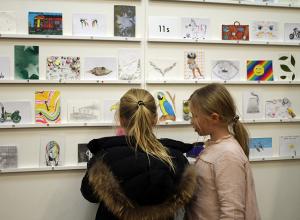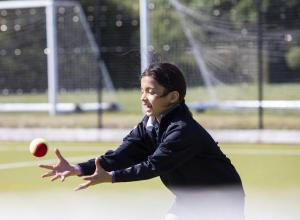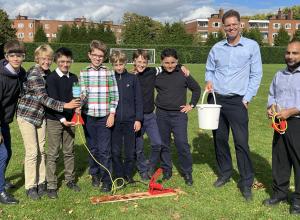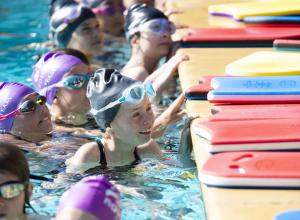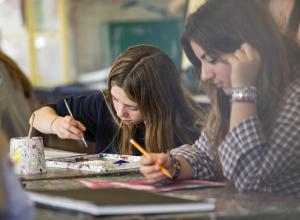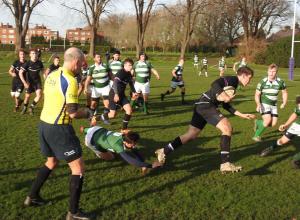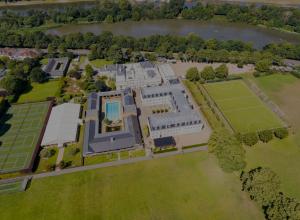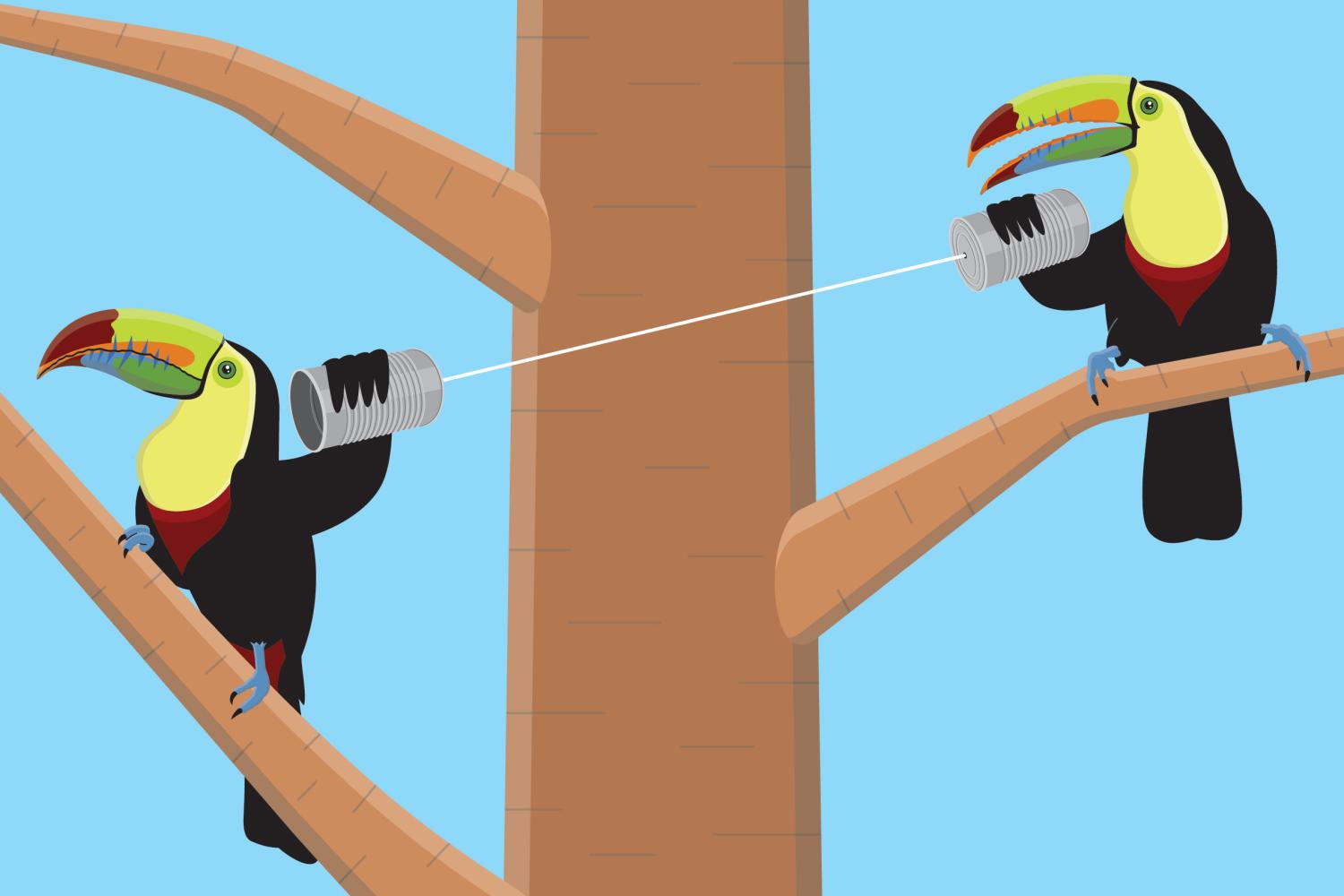
How can parents normalise talking about sex to their children? Andy Woodward suggests ways of starting a conversation and explains what Harrodian is doing to ensure Senior pupils are well informed about this vital topic
New year, new me? Well, new post at least. And one that begins with a shocking realisation… This blog of mine has been going, all too occasionally, for six years now! Shocking largely because that means that, when it began, I was still in my thirties (sigh)…
The first of these years – before I succumbed to middle age – was clearly my most enthusiastic, as the post I did five years ago (Jan 2019) was already the blog’s eighth. It was called Let’s Talk About Sex and, at the time, it still felt a little bit radical – both to write frankly about the topic on a school website, and to insist we would engage with it positively as an overt PSHE topic in school.
The first season of Sex Education, released on Netflix in 2019, was viewed by 40 million people in the first month alone and globally broadened the conversation about it. Meanwhile the actual teaching of Relationships and Sex Education in UK schools became compulsory in 2020.
Andy Woodward, Head of Harrodian Senior School
But now, here we are in 2024 and a great deal has changed. The very week I wrote that post, the first season of Sex Education was released on Netflix, viewed by 40 million people in the first month alone and globally broadening the conversation about it. Meanwhile the actual teaching of RSE (Relationships and Sex Education) in UK schools became compulsory in 2020, and the subsequent ‘Everyone’s Invited’ scandal, alleging a toxic sexualised culture in schools, led many to believe that prioritisation was urgent indeed.
I should acknowledge too, as made clear by a perusal of Daily Telegraph articles last year, that there has also been a backlash among some – based on fears either of overly liberal messaging in schools (ironically, considering quite how square the kids consider it to be!), or of government over-reach into the private realm. You’ll be unsurprised to know that those views are not my own… but I do sympathise with the notion that values and choices around intimate relationships are ideally a matter to be talked about more within the family home than in the classroom. Indeed, a key message of my aforementioned older post was a plea for parents to speak about these topics with their children. Teachers are necessarily constrained and generalised in what they say to the groups before them – you are far better equipped to help your children navigate the specific situations life throws their way.
Teachers are necessarily constrained and generalised in what they say to the groups before them – you are far better equipped to help your children navigate the specific situations life throws their way.
However, in truth, repeated studies show that many parents and teens don’t feel able to communicate openly on the topic of sex and relationships, with both sides liable to find it embarrassing or difficult. A valuable UK poll of young people carried out by the Sex Education Forum in 2021 found that 23% claimed to have received no RSE at all from their parents, and only 32% considered it to have been ‘good’ or ‘very good’ (schools only narrowly outdoing them, with a total of 35%). Where such conversations were taking place, it was too often in the form of ‘the chat’ – a one-off episode not to be repeated – or was too often based on biological fact, rather than, for example, how to pursue and recognise healthy relationships or pleasure. Personally speaking, much as I love my own parents, I’m not sure their combination of putting me in front of a 1970s sex education video and leaving the room (and then, several years later, hissing 'I just hope you’re not having sex!' at me in an argument) would win many awards. Not that there’s any magic bullet… but a willingness to normalise conversation around key topics before the actual need arises is a good idea. This can perhaps happen least awkwardly in response to situations viewed together in TV or film ('Should she be putting up with that in a relationship?' 'Hang on – was that actually consent?!'), or in the abstract terms of asking about a friend ('Why do you think they always end up in that state at parties?' 'Do you worry about their safety?'). Or, and I know it can feel scary, in making it abundantly clear that you messed up and got things wrong in your own youth (and that it had consequences) – meaning you are now on hand to non-judgementally try and help them learn from your mistakes and do better!
In truth the actual alternative to young people learning from school is too often them learning from the internet – in particular from pornography. That may seem to young people to be the place where all answers are logically found… but in truth it is a place devoid of the values we would want to accompany the first sexual steps of our children – a world typically without expressions of love, affection, respect, consent or depicting any consideration of mood, emotion or even communication. While I am sometimes defeatist in how ubiquitous and influential I now consider online pornography to be among young people (and would therefore counsel against us approaching the matter with the language of shame or accusation), I do believe – in school and at home – that it is something to robustly challenge and advise our children against, on account of its potential for addiction, its dangerous distortion of what is ‘normal’ behaviour, language and attitude within relationships (as opposed to unusually extreme or even violent), its impact on body image, or the industry’s tendency to exploit the vulnerable…
The actual alternative to young people learning from school is too often them learning from the internet...a place devoid of the values we would want to accompany the first sexual steps of our children
Back to this term then, and the role we do intend to play. Some things have indeed changed. We need, for example, to reflect on how to address the newly urgent topic of AI (which, terrifyingly enough, can now quickly create from scratch explicit images of any individual, regardless of knowledge or consent). Many things remain the same however. Teenagers will still often be in a hurry to explore the messy world of relationships, and often in the most regrettable of contexts and against all our good advice. That said, and however well they hide it, they do respect both their parents and many of their teachers, and there is real value in us, together, ensuring they are well informed and clear that:
-
They should always respect others and themselves.
-
They should never feel they have to do something they don’t truly want to.
-
Indeed, there is no hurry to do anything at all!
-
Relationships should make them feel happy and better about themselves… not worse.
We will convey these messages in a variety of ways. We trust the input of our regular visitors from It Happens, as directed to our pupils and our parents. We believe that there is a role for us teaching pupils both in both mixed gender and single gender settings. We will utilise ordinary form time sessions but will, on one or two occasions, take time off timetable. We will, in the 14s, run a ‘hands-on’ session where pupils have the chance to handle and see contraception, and to become familiar with the options available when the time comes. We will allow them to anonymously submit the questions they want answered. And, when the half term is over, we’ll ask what was useful and what we need to do better next time around. Wish us luck…
Please know that I speak only for the Senior School, and that no one here is teaching your children things before they are ready to hear them – at every stage our provision is age-appropriate and our language is careful.
One final thing. I am aware, from the MUCH-appreciated emails I occasionally receive in response to these posts, that it is accessed as much by parents of our younger pupils as by those in ‘my’ part of Harrodian. If your child is not yet a teenager, you may be reading this with alarm. Please know that I speak only for the Senior School, and that no one here is teaching your children things before they are ready to hear them – at every stage our provision is age-appropriate and our language is careful. I understand, as a parent of 8- and 10-year-olds myself, that children just a few short calendar years from adolescence can still in fact be very young indeed, and we should enjoy that fact without wish to grow them up too soon. But it is worth also sharing the sad reality that, during our invaluable recent visit from Roxy Longworth and her mother (their story is here), an anonymous survey about sexting carried out with our pupils clearly found, just as in the previous school they had visited, that the pressures involved (ie the first time they or a friend were asked to send nude images) first occurred for most at the age of 11-12, and for some even sooner. In truth, the turning point for many is the point at which they are given their own phone – a portal to a whole other world, and one we should be very mindful indeed about giving them access to unchecked. Indeed, while our school is rightfully cautious in what we say to younger pupils, you as parents may well wish to speak more frankly about these topics, and rather earlier.
If nothing else, we aspire that Harrodians be well-informed and self-respecting enough to recognise the mistakes they will inevitably make along the way and not to be defined by them.
We do very much want all Harrodians not just to survive the relational landscape of 2024, but to flourish safely within it. If nothing else, we aspire that they be well-informed and self-respecting enough to recognise the mistakes they will inevitably make along the way and not to be defined by them. People are both as straightforward and complicated as they have ever been, but the world around us, particularly where online, is perhaps more laden with pitfalls. Equipping our young people to pursue healthy relationships nonetheless is a worthy task in which we both, parents and school, have our vital role to play.
Illustration Credit: Gratisography

Andy Woodward is Head of Harrodian Senior School. He welcomes feedback to this blog at website@harrodian.com

